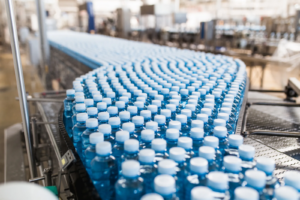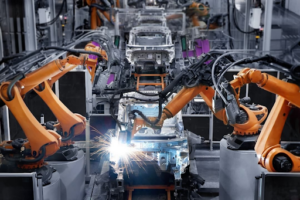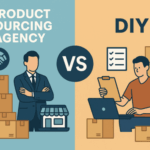Look around you—your smartphone, the coffee cup in your hand, even the chair you’re sitting on—all of these are manufactured products. But what exactly defines a manufactured product? At its core, it is any item that has undergone industrial processes to transform raw materials into finished goods ready for consumers or businesses.
Manufacturing is the engine that drives economic growth, fuels technological advancements, and shapes everyday life. Whether it’s the latest high-tech innovation or essential household goods, manufactured products keep the world running
This guide will take you through everything you need to know about manufactured products—how they are made, why they matter, and their impact on the global economy.
Manufactured Products Definition
“A manufactured product is any item that has been processed, assembled, or refined using machinery, labor, and technology.”
Unlike raw materials, which exist in nature, manufactured goods undergo modifications and enhancements to make them usable and marketable.
For Example:
A tree is a raw material, but a wooden chair is a manufactured product because it has undergone various industrial steps to become something useful.
Key Characteristics of Manufactured Products:
- Mass Production – These products are made in large quantities using machinery.
- Processing of Raw Materials – Natural resources are refined or combined to create the final product.
- Human and Technological Input – Manufacturing requires skilled labor, technology, and energy.
- Economic Value – Manufactured products contribute significantly to global trade and economic growth.
Types of Manufactured Products
Manufactured goods can be classified into several categories based on their use and production methods. Here are the major types:
1. Consumer Goods
These are products made for direct consumption by individuals. Examples include:
- Electronics – Smartphones, laptops, televisions
- Apparel – Clothing, shoes, accessories
- Food & Beverages – Packaged snacks, canned goods, soft drinks
- Furniture – Chairs, tables, sofas
2. Industrial Goods
Unlike consumer goods, industrial goods are used to produce other products or assist in manufacturing processes. Examples include:
- Machinery – Factory equipment, robots, conveyor belts
- Tools & Hardware – Drills, welding machines, screws
- Chemicals – Paint, fertilizers, cleaning agents
- Construction Materials – Cement, bricks, steel beams
3. Durable vs. Non-Durable Goods
Manufactured products can also be divided into durable and non-durable goods:
- Durable Goods – Long-lasting items like cars, washing machines, furniture.
- Non-Durable Goods – Short-lived products like paper, batteries, and packaged foods.
How Manufactured Products Are Made

From concept to creation, the manufacturing process involves multiple steps, combining efficiency, precision, and technology. Let’s break down the journey from raw material to finished product:
1. Sourcing & Processing Raw Materials
- Mining & Extraction – Metals like iron, copper, and lithium are extracted for electronics and automotive production.
- Forestry & Agriculture – Timber for furniture, cotton for textiles, and grains for food processing.
- Chemical Refinement – Petroleum-derived plastics and synthetic materials are used in various industries.
2. Advanced Manufacturing & Production
Modern factories are using cutting-edge technologies for efficient production:
- AI-Powered Automation – Smart factories integrate machine learning and robotics to improve quality control and efficiency.
- 3D Printing – Revolutionizing product customization, reducing waste, and enhancing prototyping capabilities.
- Sustainable Manufacturing – Companies like Nike are using recycled materials in their apparel production.
- Smart Supply Chains – IoT-enabled logistics systems optimize inventory and delivery.
Brand New MD, a leader in sourcing and product development, utilizes advanced manufacturing techniques to deliver high-quality, cost-effective production solutions for businesses.
3. Quality Control & Testing
Before manufactured products hit the market, they undergo rigorous testing to ensure safety, durability, and compliance:
- Strength & Durability Tests – Ensuring products meet industry standards.
- Eco-Friendly Packaging – Brands are increasingly shifting to biodegradable and recyclable packaging.
4. Distribution & Retail
Manufactured products don’t just stay in warehouses—they move through complex distribution channels before reaching the end consumer.
- Global Shipping Networks – Efficient logistics and warehousing ensure timely product delivery. Companies rely on automated tracking systems to manage inventory and reduce delays.
- Retail & E-Commerce Boom – Traditional brick-and-mortar stores are now complemented by online marketplaces, making products accessible worldwide. Direct-to-consumer (DTC) models are reshaping how brands interact with buyers.
- B2B & Wholesale Distribution – Many manufactured goods enter supply chains through wholesalers and business suppliers, ensuring bulk product availability at competitive prices.
Importance of Manufactured Products in the Economy
Manufacturing plays a critical role in global and local economies. According to a 2024 report by the World Economic Forum, manufacturing contributes to 16% of the global GDP and employs millions of workers worldwide.
Why Are Manufactured Products Important?
- Jobs Creation– Factories provide an employment opportunity for both skilled and unskilled labor.
- Economic Growth – Manufacturing industries help drive exports, helping generate revenue.
- Technological Advancements – Continuous innovations create new and improved products.
- Better Quality of Life – Affordable high-quality goods will also make one’s standard of living better.
Challenges in Manufacturing
Manufacturing plays an important role in a nation’s economy, but it also brings with it some common challenges. Such issues include:
- Supply Chain Disruption – Disruptions in the supply chain occur due to the effects of pandemics or geopolitical conflicts on the availability of materials.
- Environmental Issues – The generation of waste and carbon emissions occurs so much.
-
- Production Cost Inflation- It takes considerable investment in machinery, labor, and resources.
- Automation & Job Loss – Increased adoption of AI and robots may match the scope of work in some industries, which replaced human employees.
The Future of Manufacturing
Smart Factories
Companies like Siemens and Bosch are pioneering IoT-integrated smart factories, where AI-powered automation optimizes efficiency, predicts machine maintenance, and minimizes human intervention. Tesla’s Gigafactories showcase how robotics and automation streamline electric vehicle production.
3D Printing Expansion
General Electric (GE) is revolutionizing aerospace manufacturing by using 3D printing for jet engine components, reducing waste and improving precision. Similarly, Adidas’ Futurecraft 4D utilizes 3D-printed midsoles, enhancing shoe performance and customization.
Eco-Friendly Manufacturing
Companies like Patagonia and Apple are committing to carbon-neutral operations, investing in renewable energy, biodegradable materials, and zero-waste policies. BMW’s iFACTORY initiative focuses on sustainable car production, minimizing environmental impact.
Localized Manufacturing
Reshoring efforts are gaining momentum, as seen with Intel’s U.S.-based semiconductor plants and Foxconn’s investment in American manufacturing facilities. These efforts reduce supply chain vulnerabilities and create local jobs.
BrandNew MD: A Trusted Name in Sourcing & Manufacturing
At the forefront of modern manufacturing, Brand New MD ensures that businesses stay ahead by leveraging advanced sourcing strategies and cutting-edge production technologies. From high-quality materials to state-of-the-art automation, BNMD is committed to delivering superior products while prioritizing efficiency, sustainability, and cost-effectiveness.
Final Thoughts
Take the Next Step in Manufacturing Excellence
The manufacturing industry is evolving at an unprecedented pace. Businesses that embrace automation, AI, and sustainable practices will dominate the future of production.
Looking for a reliable manufacturing partner?
With Brand New MD, you get expertise in sourcing, product development, and advanced manufacturing solutions. Whether you’re launching a new product or optimizing an existing one, our cutting-edge technologies and global networks ensure top-tier efficiency, quality, and scalability.
Contact Brand New MD today and take your manufacturing process to the next level!










